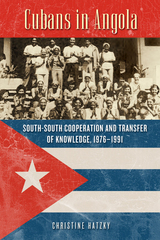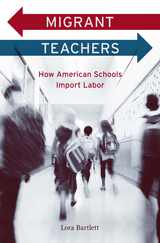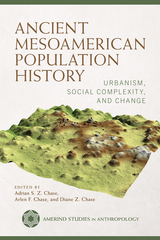

Migrant Teachers investigates an overlooked trend in U.S. schools today: the growing reliance on teachers trained overseas. This timely study maps the shifting landscape of American education, as federal mandates require K-12 schools to employ qualified teachers or risk funding cuts. Lora Bartlett asserts that a narrowly technocratic view of teachers as subject specialists has spurred some public school districts to look abroad. When these districts use overseas-trained teachers as transient, migrant labor, the teachers have little opportunity to connect well with their students, thereby reducing the effectiveness of their teaching.
Approximately 90,000 teachers from the Philippines, India, and other countries came to the United States between 2002 and 2008. These educators were primarily recruited by inner-city school districts that have traditionally struggled to attract teachers. From the point of view of school administrators, these are excellent employees. They are well educated, experienced, and able to teach in areas like math, science, and special education where teachers are in short supply.
Despite the additional recruitment of qualified teachers, American schools are failing to reap the possible benefits of the global labor market. Bartlett shows how the framing of these recruited teachers as stopgap, low-status workers cultivates a high-turnover, low-investment workforce that undermines the conditions needed for good teaching and learning. Bartlett calls on schools to provide better support to both overseas-trained teachers and their American counterparts. Migrant Teachers asks us to consider carefully how we define teachers' work, distribute the teacher workforce, and organize schools for effective teaching and learning.

Many faculty and graduate students from other countries expect language difficulties when they teach, but are unprepared for other surprises: different cultures make different assumptions about the academic background of college students, how students learn, the appropriate roles of teachers and students, and even the fundamental purpose of a college education.
The third edition of Teaching American Students explains the expectations of undergraduates at American colleges and universities and offers practical strategies for teaching, including how to give clear presentations, how to teach interactively, and how to communicate effectively. Also included are illustrative examples as well as advice from international faculty and teaching assistants. Appendices offer concrete suggestions on topics from planning the first day of class to grading papers and problem sets.
READERS
Browse our collection.
PUBLISHERS
See BiblioVault's publisher services.
STUDENT SERVICES
Files for college accessibility offices.
UChicago Accessibility Resources
home | accessibility | search | about | contact us
BiblioVault ® 2001 - 2024
The University of Chicago Press









